Our history
Milestones
Our story begins back in 2003, when Prof. Ruedi Lüthy decided to establish a treatment program for HIV and Aids patients in southern Africa. Newlands Clinic in Harare/Zimbabwe now has over 8,000 registered patients.
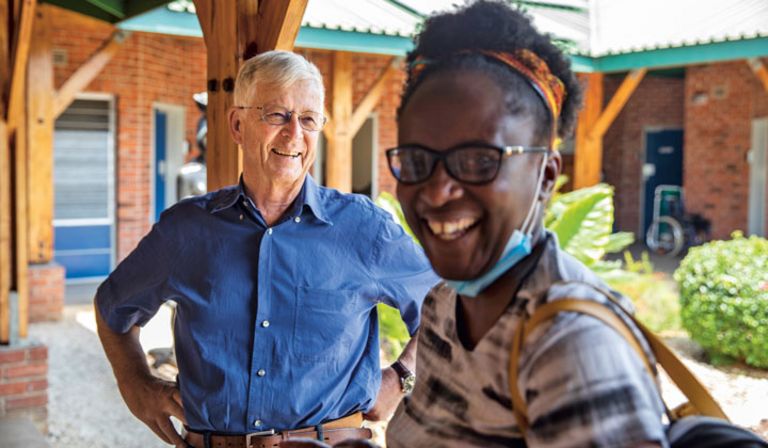
2023: Our foundation celebrates its 20 Years Anniversary
Ruedi Lüthy has founded the foundation in 2003. 20 years later more than 8000 patients are treated at Newlands Clinic and more than 1000 health care workers are trained every year.
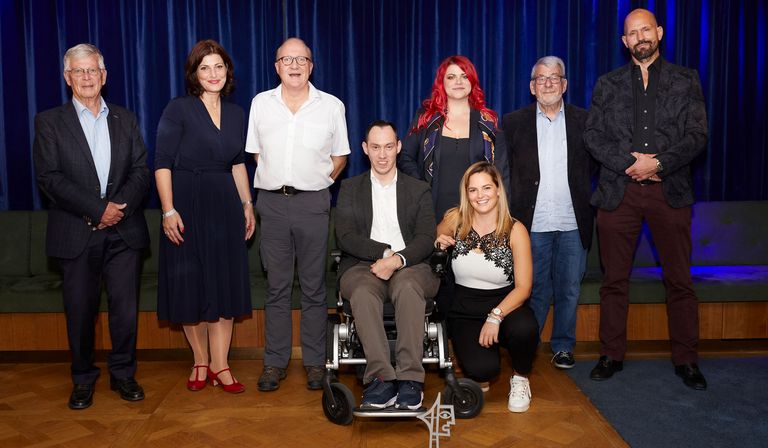
2021: Ruedi Lüthy receives Prix Courage Lifetime Award
In September the Swiss magazine "Der Beobachter" honors Ruedi Lüthy and his lifework with the Prix Courage Lifetime Award.
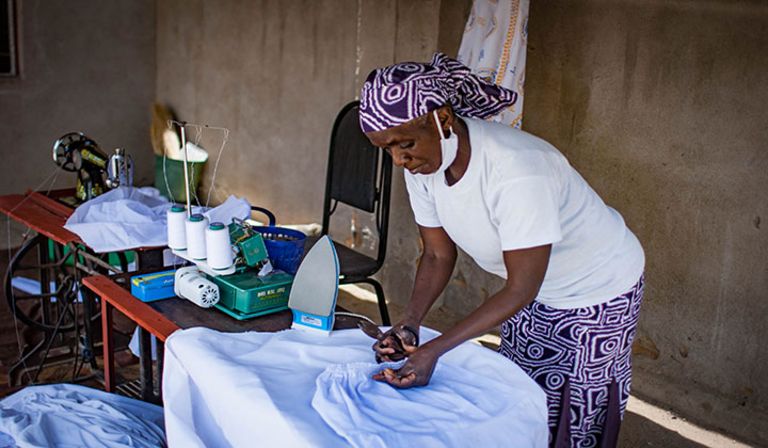
2020: Our Women Empowerment Programme is born
Many of our patients with HIV live in difficult conditions. They care for their families, do not have a regular income, are affected by poverty and some of them experience domestic violence. In our Women Empowerment Programme they start a small business and gain more independence.
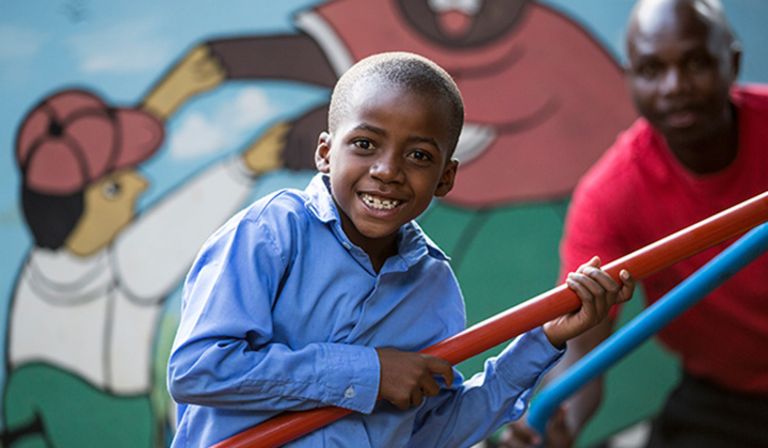
2016: A new name for our foundation
On 1 July, Swiss Aids Care International is renamed as the Ruedi Lüthy Foundation, underscoring its commitment to continuing its work in keeping with his vision and ideals over the long term. Given that the treatment of HIV/Aids is an undertaking that spans several generations, such continuity is essential.
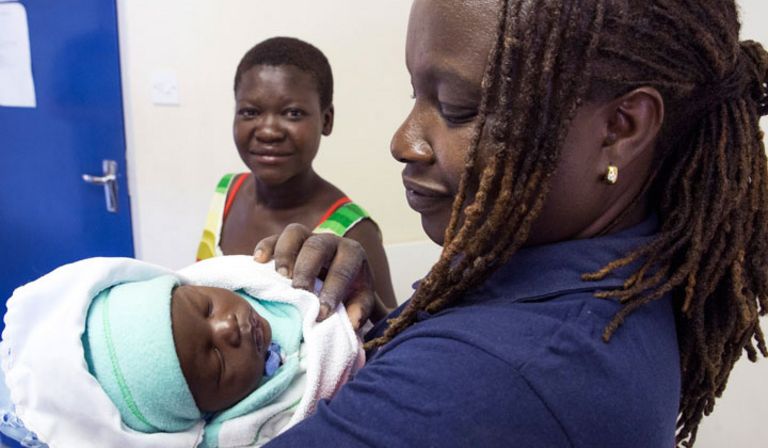
2015: Our centre for women
A significant legacy makes it possible to open a Women's Health Centre, providing preventative care and treatment of cervical cancer as well as advice on issues such as family planning and relationships.
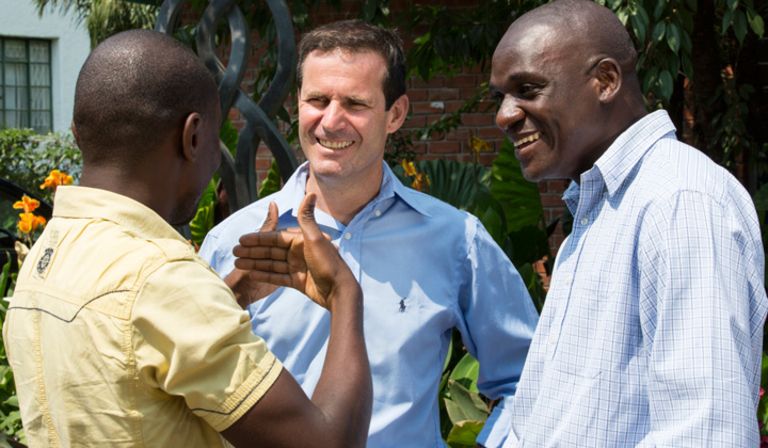
2014: Matthias Widmaier becomes Country Director
The next step in the succession planning: Prof. Ruedi Lüthy hands over the running of Newlands Clinic to Matthias Widmaier, and devotes his efforts increasingly to patients and training as Medical Director.
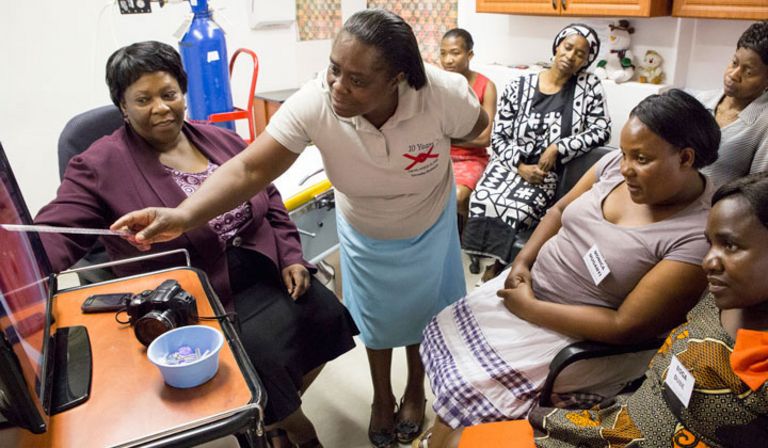
2013: A model clinic for HIV
Newlands Clinic serves as a model for others to follow in Zimbabwe: the globally active NPO Population Services International opens three clinics using our model. Newlands Clinic trains the staff and supports PSI with the overall concept, implementation and quality assurance.
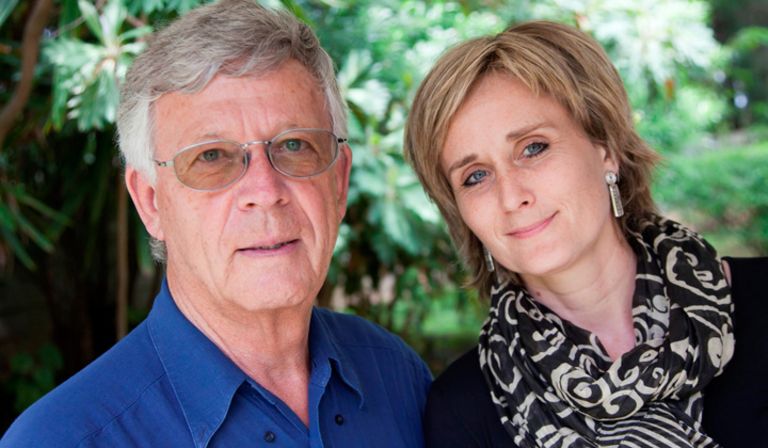
2012: Sabine Lüthy takes over as Chief Executive
In January, Ruedi Lüthy's daughter takes over as Chief Executive of the Foundation, thus ensuring that its work will be carried on in keeping with his vision and ideals when he is no longer able to do so.
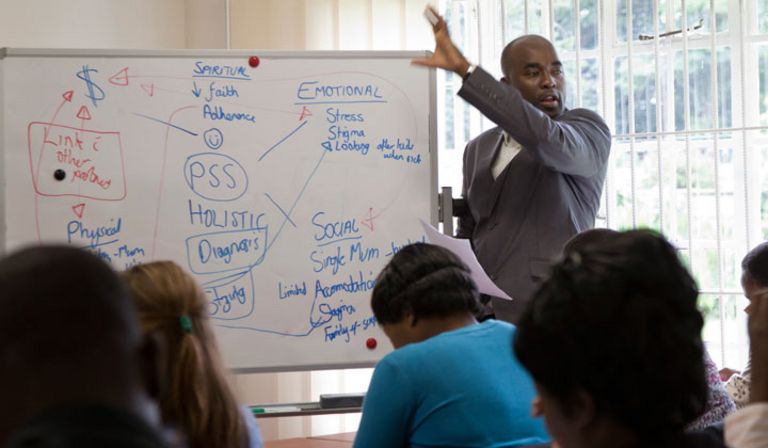
2011: Our own training centre
Thanks to the Bernhart Matter Foundation, a nearby plot of land and a building are acquired for a training centre, which is officially opened in April to provide ongoing training to local healthcare workers.
2009: Our clinic continues to grow
Newlands Clinic treats over 2,000 patients, more than 800 of them children. Meanwhile, the first training course for nurses and doctors is held. This film gives an insight into the day-to-day life at the clinic at that time.
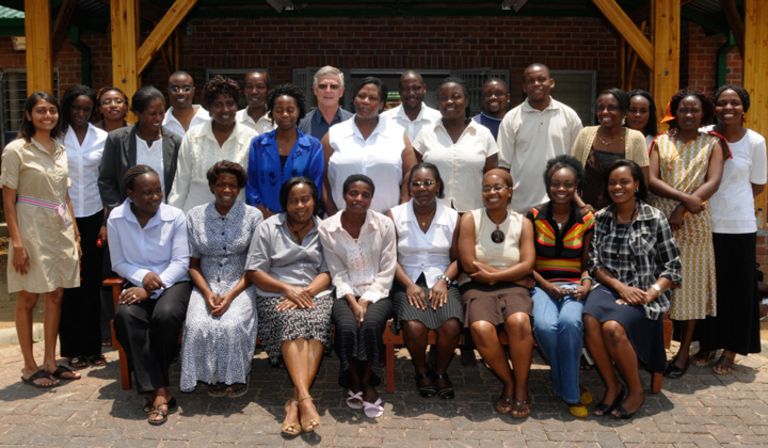
2008: Move to Newlands Clinic
Newlands Clinic is completed in May, and the move can begin. The new clinic has more treatment rooms, and more patients can be admitted.
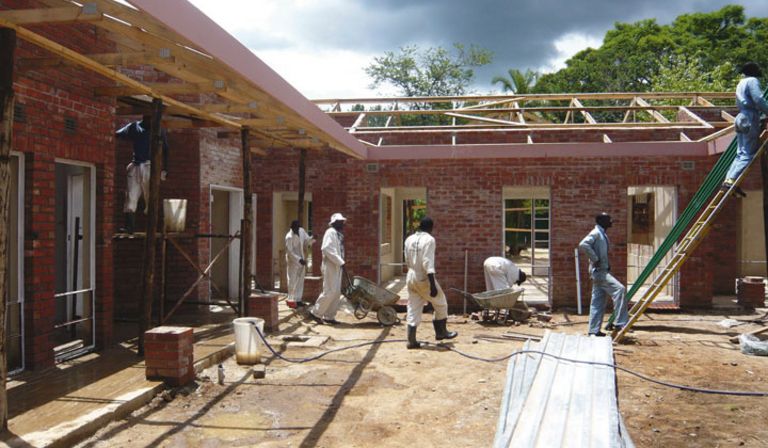
2007: Searching for a new clinic
The Connaught Clinic is bursting at the seams, and Prof. Ruedi Lüthy looks for new premises with more capacity. In August, construction starts on what is now Newlands Clinic.
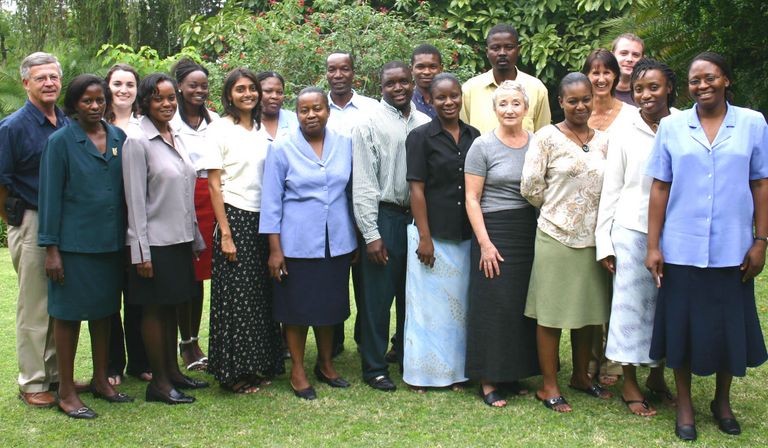
2006: One thousand patients
The first milestone is reached: Connaught Clinic has more than 1,000 registered patients receiving treatment in March, and the team has just under 20 staff. The capacity limit has therefore been reached.
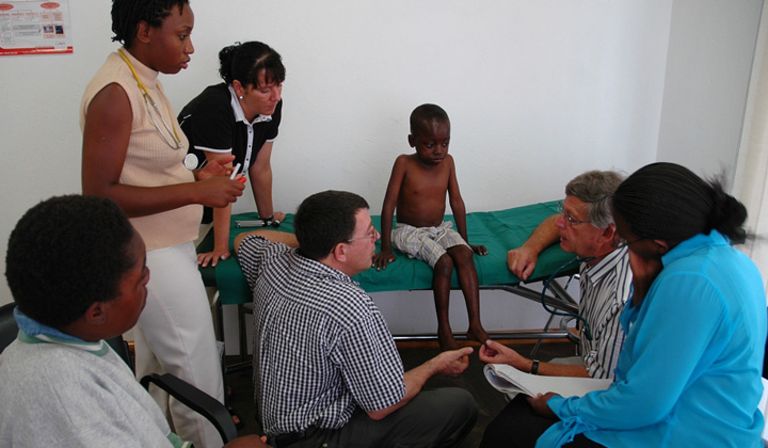
November 2004: Helping the youngest
Given the large numbers of children requiring HIV treatment, Ruedi Lüthy and his team get training from Prof. Christoph Rudin of University Children’s Hospital, Basel, in paediatric care.
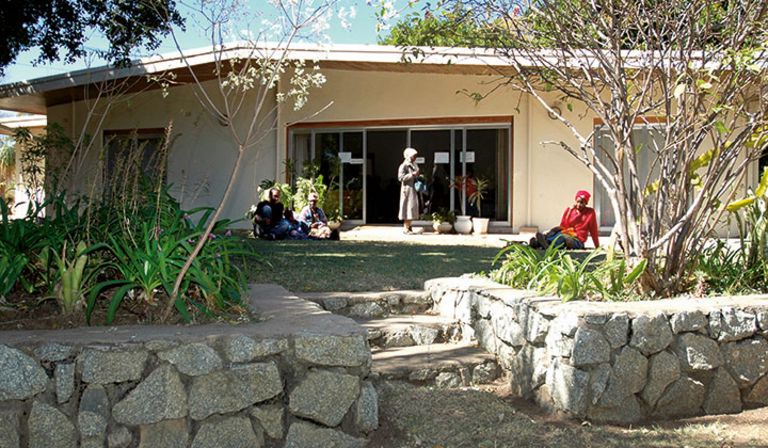
January 2004: The clinic is ready
The former Connaught Clinic in Harare is ready to move into in January. Following the training of staff, the first patients are already receiving treatment by March.
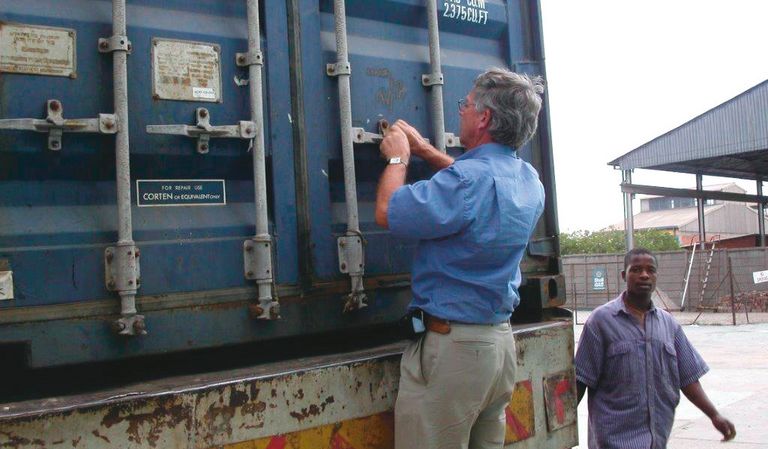
2003: How it all began
The foundation Swiss Aids Care International (now the Ruedi Lüthy Foundation) is established by Prof. Ruedi Lüthy in February. From August, he starts setting up the project in the Zimbabwean capital of Harare, looking for a suitable building and recruiting the first nurses and laboratory staff.

